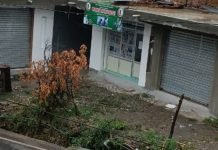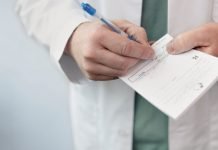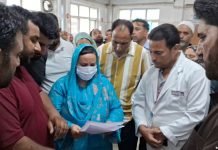
SRINAGAR — Even as COVID-19 cases are declining, Doctors Association Kashmir (DAK) on Tuesday said hospitals in Kashmir are witnessing a rise in the number of patients with severe post-Covid complications.
“We are getting many Covid patients with severe neurological complications weeks after recovery,” said DAK President and influenza expert, Dr Nisar ul Hassan.
Dr Hassan said recovered Covid patients come with Guillain-Barre syndrome (GBS), an autoimmune disorder of peripheral nervous system in which body’s immune system attacks the healthy nerve cells. “Patients with GBS manifest with weakness of all four limbs which in some cases progresses to respiratory muscle involvement needing ventilatory support,” he said.
“Some patients lack the most classical manifestation of COVID-19 infection that makes it vital to think of Covid in every GBS patient in the context of current pandemic,” he added.
“We are seeing rise in cases of strokes in patients who have recovered from COVID-19,” Dr Hassan said.
He said in the second wave, younger people are particularly affected and a delayed presentation of stroke is witnessed, weeks to months after the patient has recovered. COVID-19 increases the risk of blood clot forming which causes block in the vessel to the brain that leads to stroke.
The DAK President said patients who have recovered from COVID-19 return to hospitals with cardiac complications like myocarditis (inflammation of heart muscle) and even heart attacks. “Cardiac complications are seen even in those who have no underlying heart disease and had experienced mild COVID-19 illness,” he said.
“Another serious post-Covid complication that patients are coming with is lung fibrosis, a permanent scarring of the lung. These patients get readmitted with worsening hypoxemia and need long term oxygen therapy,” Dr Nisar said.
He said the number of patients with post-Covid issues could be higher as many with post-Covid symptoms like fatigue, lethargy, headache, body ache and joint pain are not reporting to hospitals.
“With many COVID-19 patients having multiple health issues after recovery, there is a dire need to set up post-Covid clinics at tertiary care hospitals to understand and look at management strategies of post-Covid sequelae,” he added.
Follow Us
The Kashmir Pulse is now on Google News. Subscribe our Telegram channel and Follow our WhatsApp channel for timely news updates!










